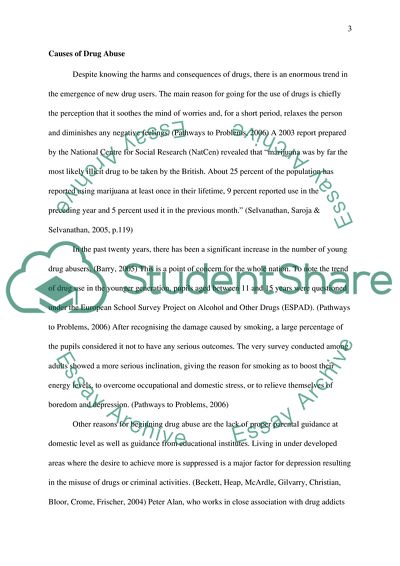Cite this document
(Drug Abuse: Problems in the UK Coursework Example | Topics and Well Written Essays - 3250 words, n.d.)
Drug Abuse: Problems in the UK Coursework Example | Topics and Well Written Essays - 3250 words. https://studentshare.org/social-science/1709877-drugs
Drug Abuse: Problems in the UK Coursework Example | Topics and Well Written Essays - 3250 words. https://studentshare.org/social-science/1709877-drugs
(Drug Abuse: Problems in the UK Coursework Example | Topics and Well Written Essays - 3250 Words)
Drug Abuse: Problems in the UK Coursework Example | Topics and Well Written Essays - 3250 Words. https://studentshare.org/social-science/1709877-drugs.
Drug Abuse: Problems in the UK Coursework Example | Topics and Well Written Essays - 3250 Words. https://studentshare.org/social-science/1709877-drugs.
“Drug Abuse: Problems in the UK Coursework Example | Topics and Well Written Essays - 3250 Words”. https://studentshare.org/social-science/1709877-drugs.


